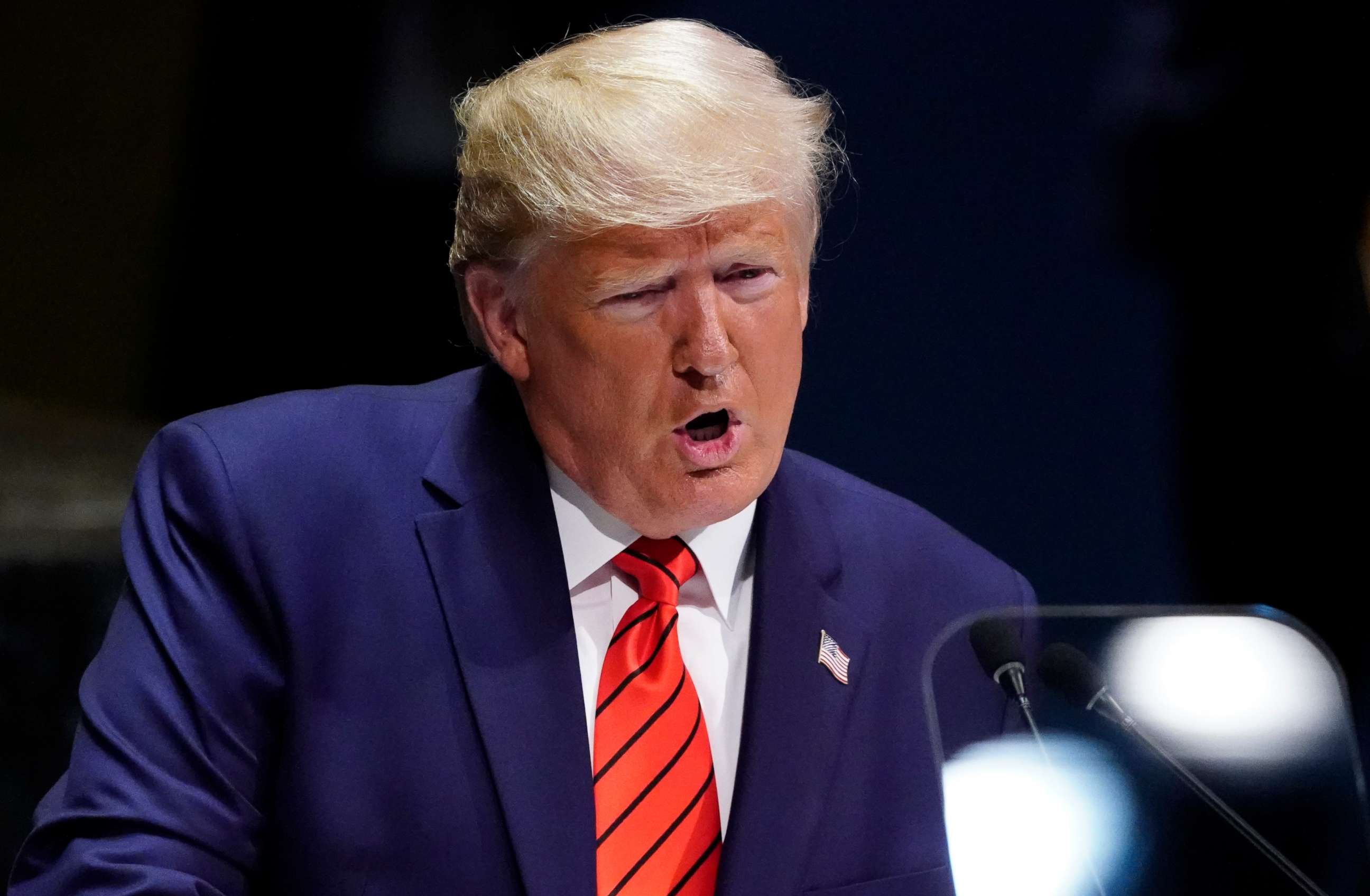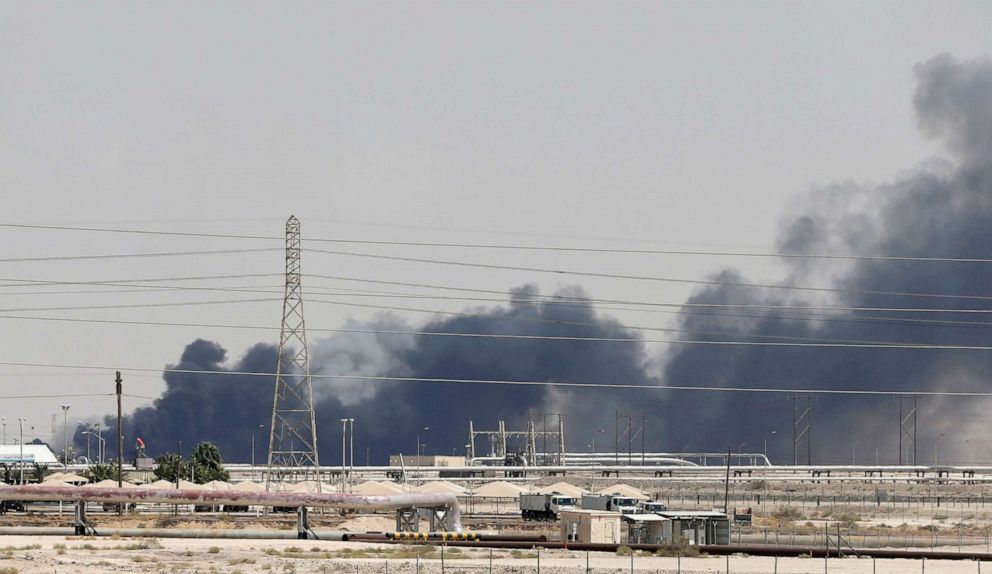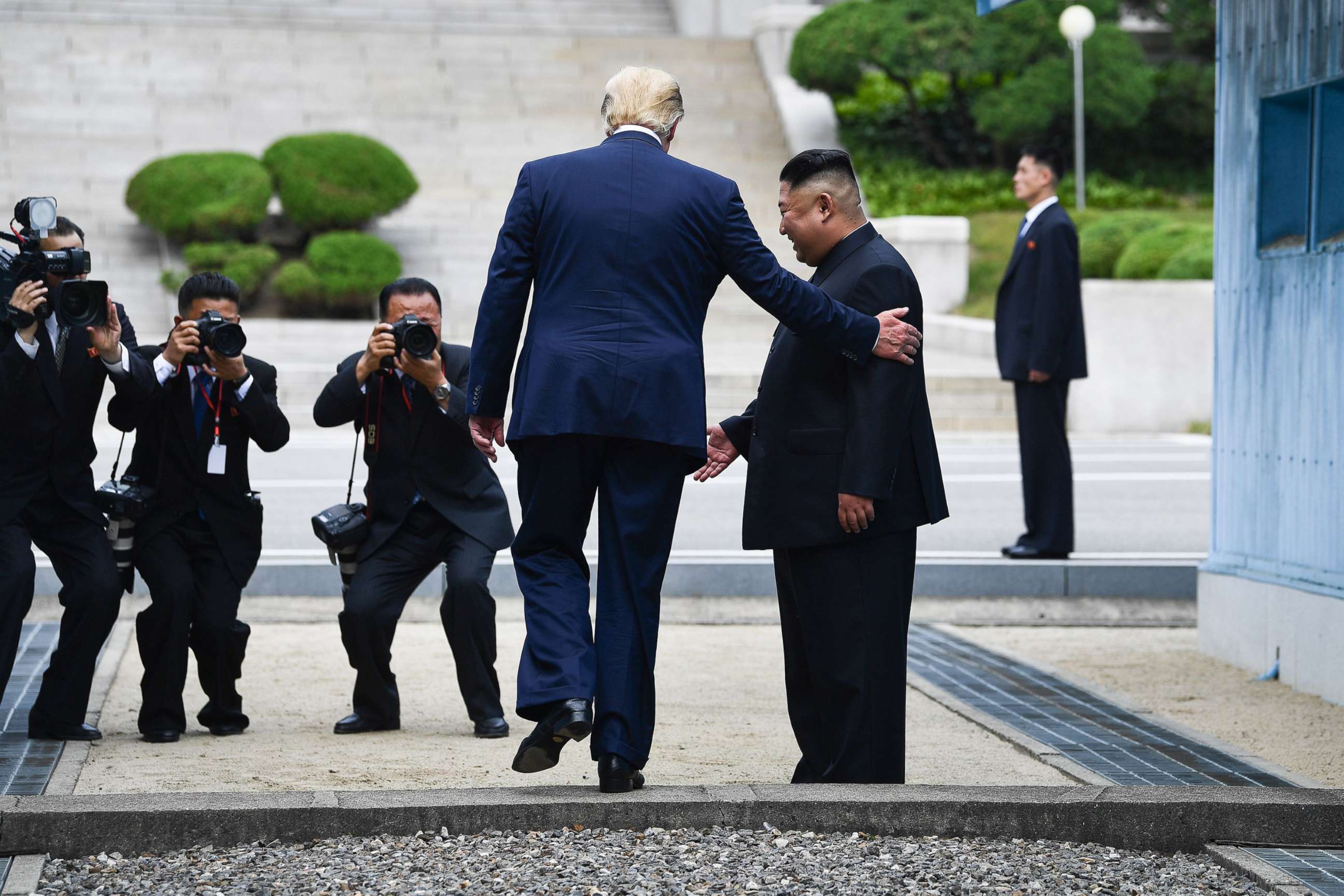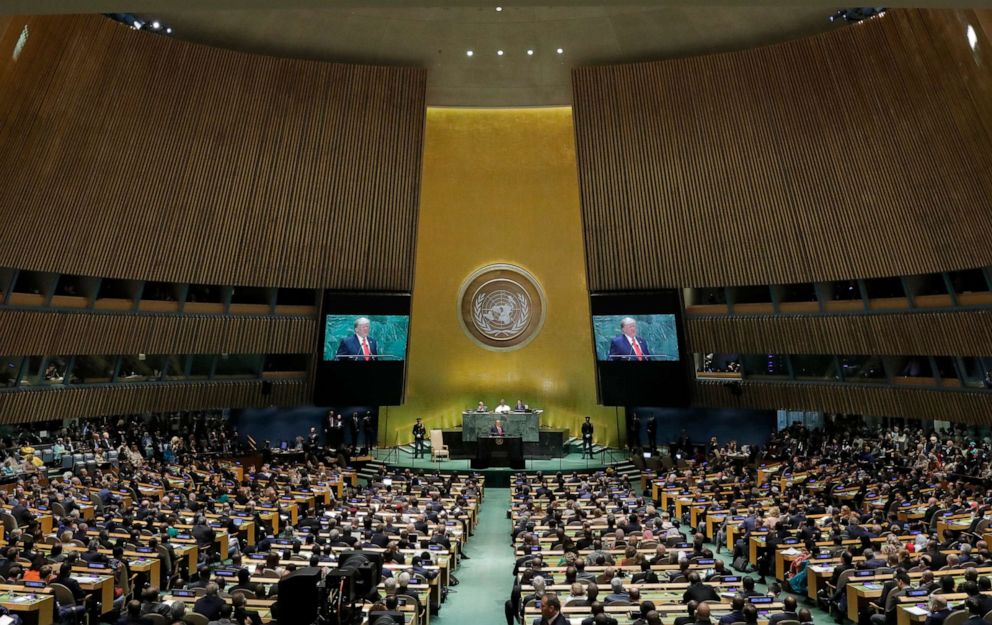Trump takes victory lap on world stage, but policies have little to show: ANALYSIS
Efforts on Afghanistan, China, Iran, North Korea and Venezuela have all stalled.
President Donald Trump took a victory lap on the world stage in his third address to the United Nations General Assembly on Tuesday. But while he took the opportunity to tout his "America First" foreign policy, his key campaigns have almost all stalled out, with critics saying some are failures.
Nuclear talks with North Korea, trade talks with China, direct negotiations with the Taliban in Afghanistan, a U.S.-led effort to oust Nicolas Maduro in Venezuela and the maximum pressure campaign against Iran have been at a stand still, recently set back or increasing risks in different regions.
"America is ready to embrace friendship with all who genuinely seek peace and respect," Trump told the hall of world leaders on Tuesday. "We want partners, not adversaries. America knows while anyone can make war, only the most courageous can choose peace."

But the risk of conflict with Iran has been at a high in recent months, North Korea continues to develop its nuclear and ballistic missile programs, the Taliban continue to attack American and Afghan forces and Maduro retains his grip on power in Venezuela.
"Around the world, what were supposed to have been marquee accomplishments are nothing more than empty diplomatic shells -- if that," said Ned Price, a former CIA and National Security Council official in the Obama administration who now is the policy director for the National Security Action group. "Rather than admit his pursuits are a work in progress, Trump -- as is his wont -- can't help but to wrap them in the guise of premature success."
Since Trump withdrew from the Iran nuclear deal in 2018 and began full enforcement of U.S. oil sanctions in May, Iran has responded by lashing out in the region -- conducting mine attacks against oil tankers, seizing other commercial ships, shooting down a U.S. surveillance drone and attacking Saudi oil facilities -- although Tehran denies doing so.

U.S. officials have said the administration's "maximum pressure" campaign is meant to drive Iran to the table, but so far at least, Iranian leaders have said they will only meet once the U.S. eases or lifts sanctions. In the meantime, Iran's attacks have unnerved U.S. allies and partners in Europe and the Middle East, but Trump's top aides, including Secretary of State Mike Pompeo, have said that Iran lashing out is evidence that the campaign is working.
While Trump and Iran's President Hassan Rouhani are very unlikely to meet during the General Assembly, Pompeo also argued the "maximum pressure" campaign should be given more time.
"We're at the start of the sanctions campaign, not the middle or the end," he told ABC's "This Week" on Sunday.
Trump's first address to the U.N. General Assembly is where he first used his infamous nickname for North Korea's leader Kim Jong Un.
"Rocket Man is on a suicide mission for himself," Trump told the audience, shocking some staid diplomats.

But his address this year only referenced North Korea in passing -- with Trump touting his "bold diplomacy." But those efforts have been stuck for weeks. Nearly three months after Trump and Kim agreed to resume working-level talks during their June meeting at the Demilitarized Zone between the Koreas, those meetings still have not happened. Trump's chief negotiator, special envoy Stephen Biegun, is attending the U.N. General Assembly, but the State Department has said they have no meetings to announce with the North Koreans -- who didn't send their foreign minister, but a lower-level delegation.
With diplomacy stalled, Kim is reportedly taking the time to expand his nuclear arsenal and improve his ballistic missile program, with a series of short-range tests that Trump has waived off as unimportant.
Trump's speech also made a brief reference to Afghanistan, where his administration has been pushing a peace process that includes direct talks with the Taliban and an effort to get the militant group into negotiations with the Afghan government and other Afghan leaders.
"We will never stop working to make peace a reality," Trump said of Afghanistan, but he declared those talks "dead" after he revealed he had invited the Taliban to Camp David and then rescinded the invitation. Since then, U.S. and Afghan officials have been left in limbo about whether the diplomatic process will continue, awaiting a White House decision.

The administration does have broad support for its Venezuela policy, but nine months after declaring Maduro illegitimate, its efforts to facilitate his ouster have not succeeded. With support from the Venezuelan military's leadership and Russia and Cuba, Maduro even seems comfortable enough in his standing and unafraid of a coup to travel to Moscow this week, where he will meet with President Vladimir Putin, according to the Kremlin.
In the early weeks after recognizing Juan Guaido, the president of the opposition-controlled National Assembly, as the interim leader, U.S. officials like Pompeo said it was a matter of weeks before Maduro would go. After an uprising in April, Pompeo said Maduro was on his plane and ready to leave. And yet, the strongman has shown no signs of departing, even in the face of new sanctions from Latin American countries and increased pressure from the U.S.
Given these challenges, some old foreign policy hands called on Trump to reach out to the international community to bolster these campaigns, instead of promoting the nationalist push he gave in his speech.
His speech was missing "any vision of collective action (against) global threats," according to Richard Haass, president of the Council on Foreign Relations, who served in both Bush administrations. "Trump claims that the future belongs to patriots, not globalists. Smart patriots though will comprehend that the future for the U.S. will be far worse unless it finds ways to work with others to combat climate change, disease, terrorism and other global challenges."




